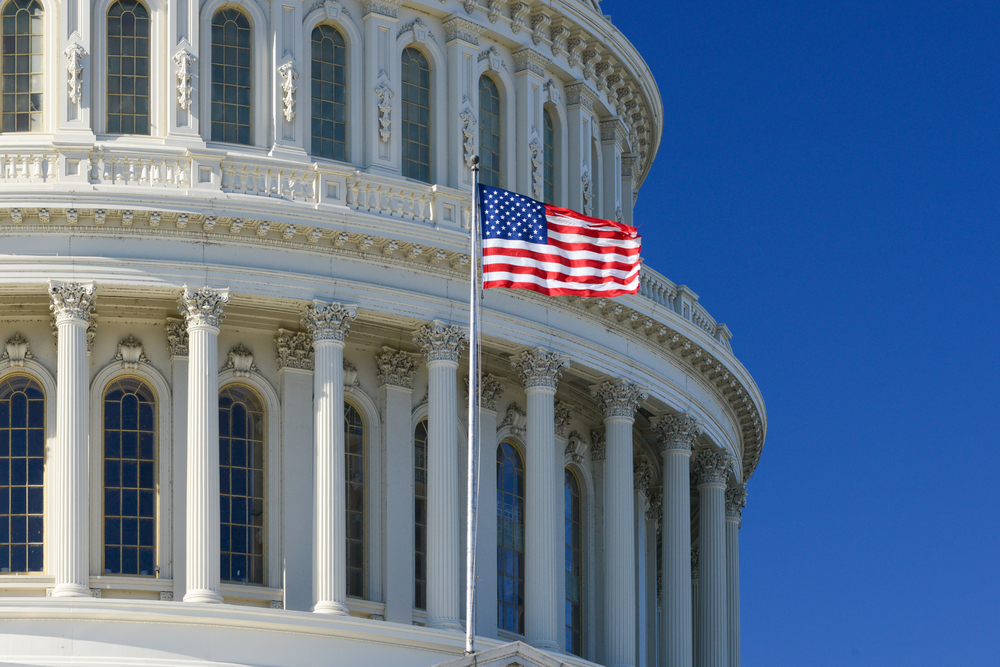
With biological threats to America and its interests overseas increasing, waiting any longer to commit federal funds to national biodefense would not be in the best interests of the health and well-being of United States’ citizens, nor the country’s security, the Blue Ribbon Study Panel on Biodefense warned members of Congress on Wednesday in a newly released report.
“Biological events occur too frequently to allow inefficient funding mechanisms and ineffective programmatic efforts to risk lives and our national security,” concludes the panel’s bipartisan report, Budget Reform for Biodefense: Integrated Budget Needed to Increase Return on Investment. “The nation must take a business-like approach to biodefense budgeting.”
In addition to the potentially colossal toll on human lives that intentional, accidental or natural outbreaks could inflict, the associated economic costs of such outbreaks are entirely unsustainable based on current funding approaches, said panel co-chairman Joe Lieberman during a Feb. 28 press call.
“Emergency appropriations reach into the billions in direct outlays to the U.S. government. Economic impacts of a catastrophic outbreak could reach $1 trillion,” said Lieberman, the former Democratic U.S. Senator from Connecticut and former chairman of the Senate Homeland Security and Governmental Affairs Committee.
And it’s time to stop sitting around hoping for federal approval of emergency supplemental funds every time there’s a significant event, such as this season’s deadly influenza outbreak, added Blue Ribbon Study Panel member Ken Wainstein during the call. “The current situation isn’t sustainable, and it should be fixed,” said Wainstein, former Homeland Security Advisor to U.S. President George W. Bush.
The panel in a statement cited the U.S. government’s “ad hoc and stove-piped approach to budgeting across multiple federal agencies” as the reason why progress hasn’t been made toward an overall strategic biodefense strategy.
In its report, the panel noted that “the Executive Branch and Congress do not comprehensively assess how the government currently spends its biodefense dollars. This lack of clarity prevents departments and agencies from identifying gaps and setting long-term strategy.”
The Office of Management and Budget (OMB), Lieberman added, also doesn’t know how much the federal government spends on biodefense because “the sad fact is, more than two dozen agencies are working in silos across biodefense; that increases our vulnerabilities. Once we have a strategy and match that strategy with budget reforms … that’s the beginning of a much more effective biodefense national strategy.”
The Blue Ribbon Study Panel on Biodefense has made 33 recommendations to better defend the nation against biological threats and the White House has responded to a key recommendation with plans to produce a National Biodefense Strategy sometime this year. The strategy, to be created by the U.S. Departments of Homeland Security, Health and Human Services, Defense and the U.S. Agency for International Development, also was required by language included in the fiscal year 2016 National Defense Authorization Act.
President Donald Trump in December 2017 unveiled the new National Security Strategy, which will be followed in 2018 by the release of the National Defense Strategy and in random order the National Biodefense Strategy, the Nuclear Posture Review, and the Missile Defense Review.
Of course, a strategy isn’t enough by itself, according to the Blue Ribbon Study Panel’s report, which offers a specific recommendation to align the National Biodefense Strategy with long-term budget priorities that are sustained by appropriations, Lieberman said.
“We are asking the Administration to undertake some relatively simple measures that could dramatically improve the public health security of the American people,” said Tom Ridge, who co-chairs the Blue Ribbon Study Panel on Biodefense with Lieberman, in a statement.
“We’d like the White House to tell Congress what the biodefense spending request is, and how it meets the goals of the National Biodefense Strategy,” said Ridge, who served as governor of Pennsylvania and was the first U.S. Secretary of Homeland Security. “And we are asking Congress to rally around this mission space in a way that supersedes committee lines.”
During the press call, Wainstein highlighted three recommendations, among others in the Blue Ribbon Study Panel’s report, which request that:
- OMB annually submit an integrated budget request to Congress that outlines federal-wide biodefense spending and how it is tied to mission objectives;
- Congressional leadership appoint a temporary bipartisan and bicameral congressional biodefense working group to determine the structures and processes for streamlining biodefense oversight, and to consider new legislation that would strengthen national biodefense and hold the Executive Branch accountable for using federal funding to responsibly execute the National Biodefense Strategy; and
- Congress establish a public health emergency fund of at least $2 billion that could be replenished when needed.
The White House also should create a new, government-wide Biodefense Coordination Council consisting of senior department officials, independent agencies and institutions, the private sector and state, local, tribal, and territorial representatives that would help identify redundancies and gaps in biodefense before federal dollars are spent, according to an opinion piece The Hill published on Feb. 28 written by Lieberman and Ridge.
“Some of the biggest threats to the nation come from the smallest organisms on the planet. Money spent strategically now could save millions of lives and billions of dollars in the long term,” wrote Lieberman and Ridge.
And while the U.S. thus far has managed to contain many diseases and prevent major losses of life, “it is only a short matter of time before a large-scale event exceeds the ability of our country and the world to prevent biological catastrophe,” according to the panel’s report.
“This must become a national security priority measure,” said Lieberman. “We’re a lot more vulnerable than we should be.”

